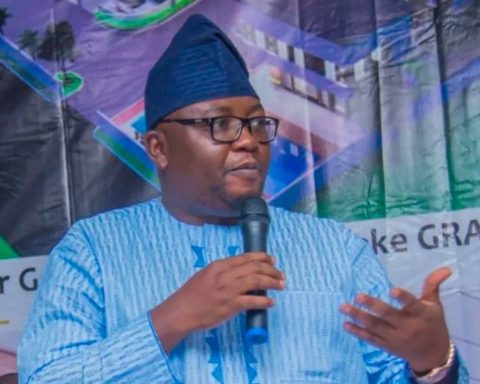Nigeria’s Minister of Power, Adebayo Adelabu, has warned that the sector’s stability is threatened by a N4 trillion debt owed to electricity generation companies (GENCOs).
The debt, which has accumulated since 2015, has remained a source of concern as GenCos worry over non-payment and the effect on their operational sustainability.
Join our WhatsApp Channel“Without immediate liquidity support, the sector faces the real risk of generation shutdowns, which would cripple the economy and undo the hard-earned gains,” Adelabu warned during a meeting between the President and the Association of Power Generation Companies (APGC) at the Presidential Villa.
According to a statement issued on Monday by the minister’s spokesman, Bolaji Tunji, Adelabu emphasised that the Tinubu administration’s reforms had already established the foundation for an independent power market and called for a partial debt defrayment to continue operations while audit procedures were completed.
The minister emphasised the necessity of addressing the shortage of gas supplies, especially in the Afam axis, where generation was disrupted by unpaid gas suppliers.
READ ALSO: We’ll Study Egypt’s Power Generation, Transmission Model – Minister
He stressed that liquidity is the industry’s lifeblood and suggested quick fixes, like NLNG’s unlocking of 800 million cubic feet of gas, to stabilize production while long-term reforms take hold.
He supported the President’s call for GENCOs and financial institutions to be patient as the government completes its verification process.
He acknowledged investors’ frustrations, but emphasized the importance of ensuring that each liability claimed was valid and verifiable.
According to Adelabu, electricity remains the foundation of Nigeria’s industrial and economic ambitions, and he encourages collective perseverance to ensure the sector’s revival.
He expressed confidence that with the President’s continued support, the sector will overcome its legacy challenges and provide stable, affordable power to all Nigerians.
Adelabu emphasized the transformative progress made in the power sector since May 2023, praising the President’s visionary leadership for restoring investor confidence and driving tangible improvements throughout the electricity value chain.
The minister highlighted key achievements under Tinubu’s administration, including the enactment of the Electricity Act (2023), Tinubu’s first piece of legislation, which decentralized and liberalized Nigeria’s electricity market to promote competition and private-sector participation.
READ ALSO: $200bn To Fix Electricity System Is Outrageous, Nigerians Tackle Power Minister Adelabu
“The administration also launched the first Integrated National Electricity Policy in 24 years, providing a coherent framework for sector planning and execution. Over $2 billion in new capital has been attracted for grid expansion and off-grid electrification projects, while annual sector revenue rose by 70 percent, from N1 trillion in 2023 to N1.7 trillion in 2024, reducing government subsidy obligations by N700 billion.
“Installed generation capacity has grown from 13,000MW to 14,000MW, with an all-time peak generation of 5,801MW and zero national grid collapses in 2025. Additionally, over 300,000 smart meters have been delivered under the N700bn Presidential Metering Initiative, with 3.45 million more in procurement,” the statement stated.
While hailing these accomplishments, Adelabu cautioned that if immediate action is not taken to pay off the N4 trillion debt owed to the Gencos, the progress could be derailed.
The meeting was attended by Femi Gbajabiamila, the President’s Chief of Staff; Wale Edun, the Coordinating Minister of the Economy and Finance; Mohammed Idris, the Minister of Information; Olu Verheijen, the Special Adviser on Energy; GENCO chairmen, including Col. Sani Bello (rtd); and Tony Elumelu and Kola Adesina, industry leaders.
Victor Ezeja is a passionate journalist with seven years of experience writing on economy, politics and energy. He holds a Master's degree in Mass Communication.











